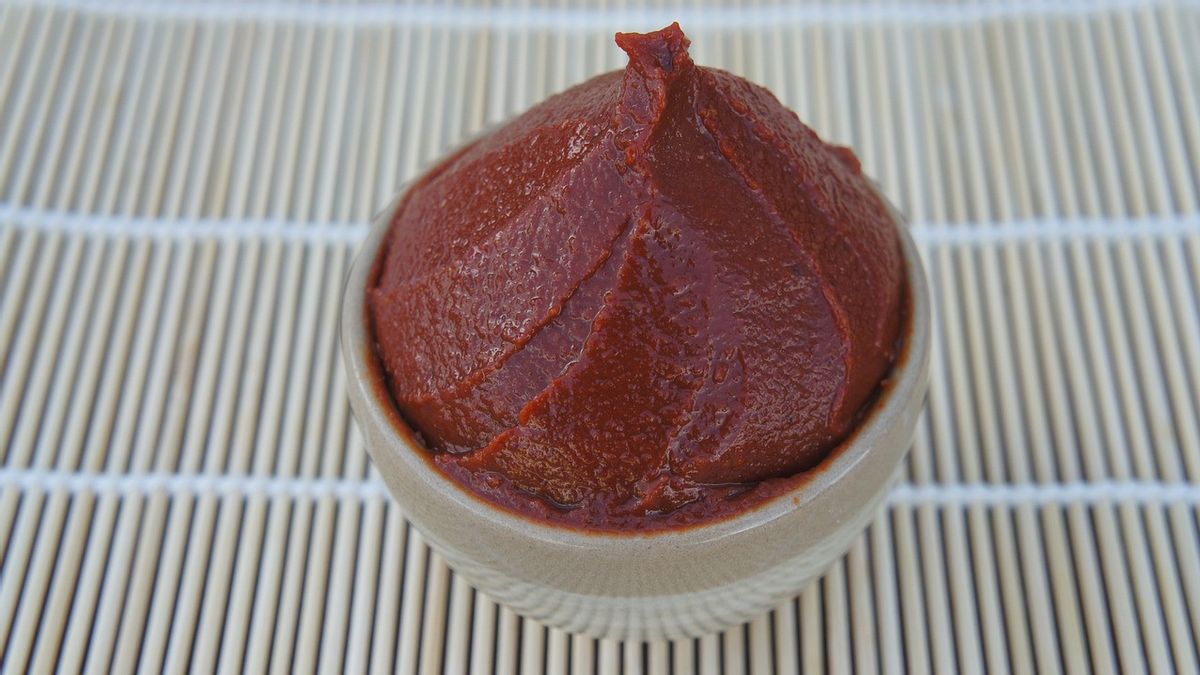YOGYAKARTA Miso is a half-dense pasta, made of soybeans fermented with coji (Asperangllus oryzae) and salt. This fermentation process produces side products in the form of alcohol or ethanol. So, is miso halal?
Before knowing the answer to this question, let's look at the ingredients used to make miso in the review below.
According to The Spruce Eats page, miso is often used as the main ingredient in Japanese cuisine. Miso became the basic ingredient for making a warm miso soup.
Miso is shaped like a pasta whose texture is similar to peanut butter. There are many types of miso, some are fine textured but some have a rough and thick texture.
Miso is made from fermented soybeans, rice, wheat, minyak, black wheat, haver, and other cessia with salt. Whenapa or microorganisms used for fermentation are Asjalanllus oryzae, quoted from LLPOM MUI
The taste, aroma and color of the miso depend on raw materials, recipes, and long fermented. Generally, miso pasta has yellowish cream, light brown, dark brown, and blackish colors.
SEE ALSO:
Fermentation in the process of making miso produces side products in the form of alcohol or ethanol. Therefore, many view the fermentation process to be one of the critical points of halal miso.
According to the Fatwa of the Indonesian Ulema Council (MUI) Number 10 of 2918 concerning Food and Beverage Products Containing Alcohol/Etanol, fermented food products containing alcohol or halal legal ethanol, during the process do not use illegal materials and if medically they are not dangerous.
Related to this, MUI Corporate Secretary of LPPOM Raafqi Ranasasmita said, basically miso pasta made from fermented halal plant materials for consumption.
Furthermore, if the miso fermentation process is not mixed with other critical ingredients and consumption is certainly not dangerous, then the miso pasta is not included in the fermented product of the haram category.
"Psta miso is indeed a product of a fermented process, but not all products that go through the fermentation process will produce haram products. The fermented products that fall into the haram category are those that produce alcoholic beverages or what are commonly known as kharma. This is also in line with LPPOM research which shows that fruits naturally also contain ethanil, so they are not punished with haram, "said Raafqi, quoted by VOI, Friday, October 18, 2024.
However, miso pasta can still have a critical point if in the fermentation process or the results are finally sterilized by adding khamr and other additional ingredients such as seasoning, hydrated protein, and sweetener.
What must be considered, if the miso product already has an MUI halal certificate, it means that it can be ascertained that the content of alcohol/ethol is not categorized as a khamr category, begu is also confirmed to be halal.
That's information about whether mass is halal. Get news updates of other options only on VOI.ID.
The English, Chinese, Japanese, Arabic, and French versions are automatically generated by the AI. So there may still be inaccuracies in translating, please always see Indonesian as our main language. (system supported by DigitalSiber.id)

















